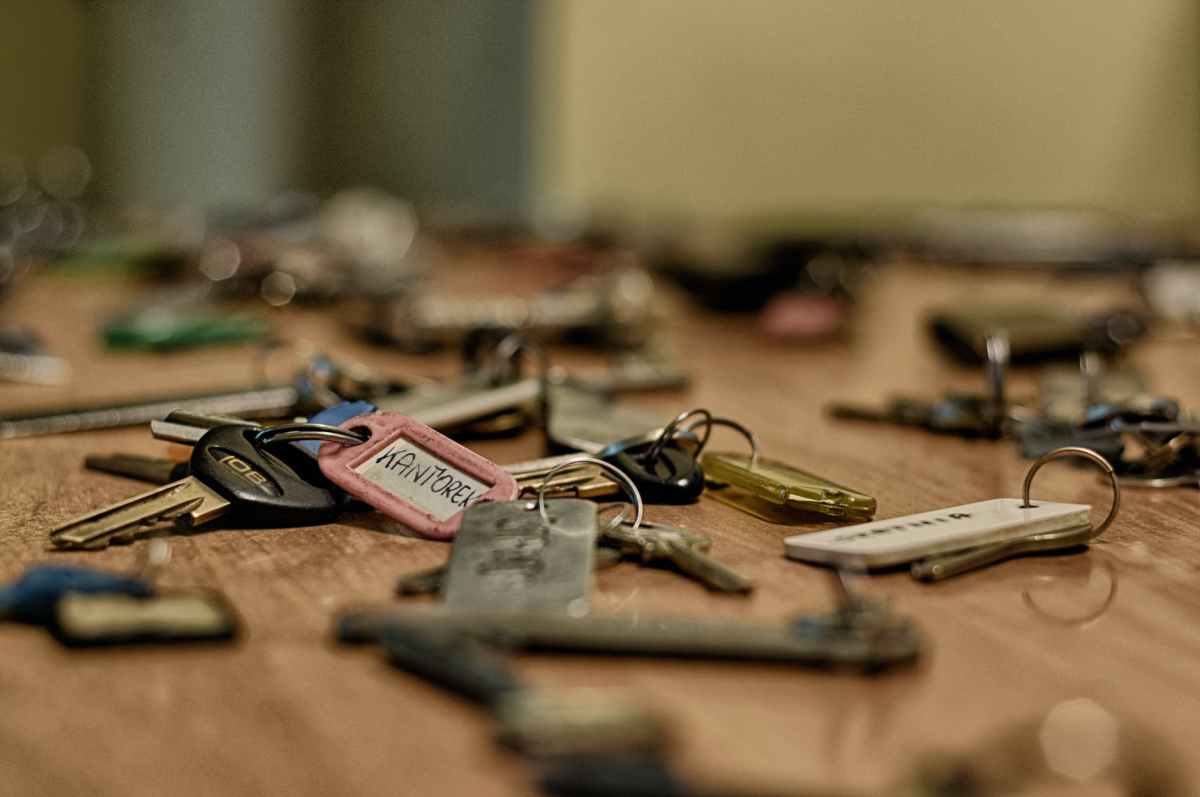I preached this sermon on Sunday, August 20, 2023 at St. Anne Episcopal Church, West Chester, OH. The lectionary text cited is Matthew 15:21-28, Jesus’ interaction with a Canaanite woman.
Have you ever looked back at some moment in your life and wished you could have a do-over? I know that it’s popular to say things like “no regrets” and “everything happens for a reason,” but if I’m perfectly honest, there are plenty of things I would change if I could. Some of them are a bit trivial, like my questionable fashion choices in high school (though some of these, as I approach 40, already seem to be coming back around).
But some of the regrettable things are a bit harder and heavier: the things in my life done and left undone, the things said and left unsaid. They jangle around in my memory like a set of keys—keys for doorways that can no longer be opened—tarnished and jagged and yet hard to throw away.
Truth be told, though, I am mostly ok with that. While I don’t think it’s helpful to myself or anyone else to wallow in regret, I do think there is value in remembering what has not gone well, what has been broken within us and broken by us, because it informs how we can make different choices in the present and on into the future.
This is true not just for individuals, but for communities and nations, too, all of whom must reckon with the more painful aspects of their histories if they ever hope to unlock the shackles that bind their greatest ideals, to liberate their deepest and most beautiful dreams.
We don’t get a do-over, exactly, but we get an infinite number of opportunities, as long as we live, to do better, to discern and to grow in wisdom, informed by our past but never imprisoned by it.
And this not just a sort of humanistic self-improvement philosophy, but the fundamental arc of Scripture, a story of promise and regret and repentance and redemption, a story which is itself filled with the messy choices of people and of nations wrestling with a Divine presence and power only partially understood, and yet who are drawn, always, always, into a new revelation of the breadth and the depth of God’s infinite power and unfailing ability to redeem our complicated histories.
I’ve been pondering all of this about do overs and doing better because, I think, it will help us wrestle with our challenging Gospel text this morning. Not solve it, but wrestle with it.
Let’s just name the hard thing up front: Jesus is, to say the least, not kind to the Canaanite woman; he associates her and her people with dogs, and seems uninterested, at first, in healing her daughter. And we could, as many have, spend a lot of time wondering whether he was having his own regrettable moment or whether he was, in some opaque Divine way, testing the woman’s faith. Given who Jesus is, neither of these two choices is particularly easy or comfortable.
But it is also good for us to step back and consider that for the disciples, and even for the original hearers of Matthew’s gospel, the truly remarkable thing in the narrative is not Jesus’ commitment to the children of Israel, nor his verbal sparring with the woman, but the fact that, ultimately, she is a Canaanite who receives God’s blessing.
For if Israel’s troubled collective memory is a set of old keys, their relationship with the Canaanites is a particularly heavy and sharp one—the Canaanites are the people who originally inhabited the Promised Land, they were the ones displaced and slaughtered by Joshua’s armies, they were among the ones subjugated by the Kingdom of Israel and even now, in Jesus’ time, under Roman rule, the Canaanites are still a people whose name evokes that strange mixture of pride and fear when we encounter those whom we have othered past the point of recognition.
And all of this, all of this spilled blood and rage and this faded ghost of empire is heaped upon the Canaanite woman—this woman who has surely knelt at her child’s bedside, eyes brimming with tears, praying for her to make it; this woman who shouts in the street; who cries out for help; who boldly kneels before Jesus and seeks her daughters survival. She is a woman of unquestionable courage, but as a Canaanite she is also a symbol of all that Israel has wrought, and all that they have lost. No wonder they want to silence here and send her away. We often try to ignore those who remind us of our own wounds.
But there’s something we have to understand about Jesus, something which both explains and underscores the significance of what happens next, the fact that he doesn’t send her away.
From the very beginning, when he was born as the Son of David in Bethlehem, Jesus has carried both the burden and the promise of Israel within his flesh—their chosenness and their chastening. We might even say that throughout his life, Jesus has embodied and recapitulated the original story of Israel.
And thus, Jesus, like Israel, is exiled into Egypt and then brought back; and like Israel he is sent into the desert to be tested and formed; and like Israel he bears out the weighty tradition of the prophets in his teaching and his miracles. And in all of these instances, he gathers up the glory and the pain and the belovedness of his people to bring it into an ever deepening level of Divine intimacy, knitting Israel’s story of liberation into the very fabric of creation, that it might become everyone’s story, in every time, in every nation.
Which makes his encounter, today, with the Canaanite woman, all the more significant, because we cannot forget that Israel’s history, its journey, is political and territorial, not just theological. And so now Jesus stands here, as Israel once did when they crossed with their armies to the other side of the Jordan, he stands here once again holding the life of a Canaanite in his hands, bearing the ancient grudges and the ancient fears of his people on his shoulders, and….he lays them down.
He lets this mother’s love, and her faith, and her fierce determination change the story. O Woman, he says, great is your faith, and while the past cannot be erased, somewhere a new has opened, and suddenly the Kingdom of Heaven is bigger than Israel alone, bigger than any one nation. And while the children of the ones who spilled each other’s blood cannot get a do-over, they can do better. They can tell a new story, a story in which the daughter of a Canaanite is as beloved and valued as anyone else, and in which the only conquering power is mercy, and where the only Promised Land is the one big enough for everyone.
Can we tell that story, too? Can we show the world what it looks like to do better, even if we can’t get a do-over on the most painful parts of our own history? Can we lay down our own ancient enmities and fears and misplaced nostalgia so that the best of who we have been might inform who we yet might become? These are deeply personal questions as well as collective ones for our church and for our world.
But the good news of the gospel is that the answer is always YES. Yes, there is something on the other side of regret. Yes, there is something on the other side of failure and fear. Yes, there is a place where we won’t need all those old keys jangling in our pockets after all, because in that place all the doors will be flung wide open, and no one will be shut out, and everything that has been lost will be found and made whole.
Call that place what you will: call it the Kingdom, call it the new Creation, or call it Canaan; by any name and by God’s grace we’re heading to that land of promise together, and when we arrive, I suspect it will feel like this: waking up to a mother’s face, brimming with joyful tears, saying, my child, all is well. I am here. You made it.

